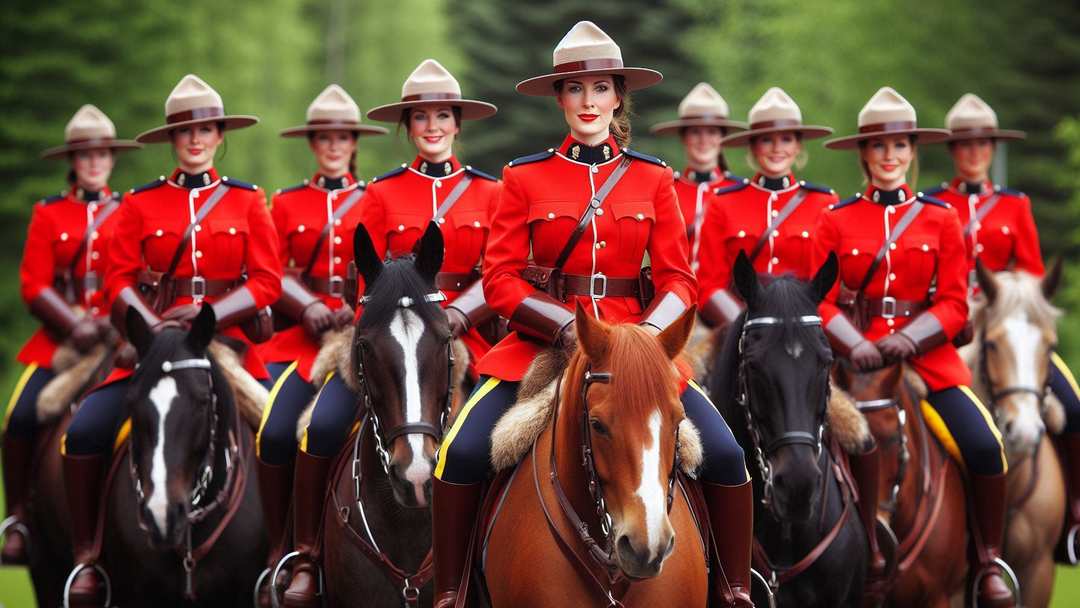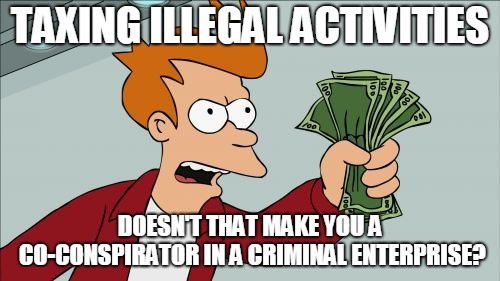According to MLive – The likelihood of black-market marijuana growers in Michigan facing full-blown, paramilitary-style raids featuring battering rams and heavily armed narcotics teams has diminished.
Growing illegal marijuana in Michigan, even potentially thousands of plants, is only a misdemeanor crime, the state Court of Appeals ruled on Oct. 5, 2023.
Attorney Michael Komorn of the Komorn law firm specializes in cannabis defense and currently has several clients charged under felony marijuana possession laws. In light of the Court of Appeals ruling, he plans to file motions requesting those charges be reduced to misdemeanors.
Komorn said most prosecutors and police have already placed a low priority on marijuana enforcement, except for “certain pockets” of the state.
“They’ll raid like the old days, come in with guns and masks and go through that whole process,” he said, “but their dilemma is, how do we charge somebody. What, do you get charged with a misdemeanor?
“I have a number of cases where they’ve seized property and not charged anybody. And you can only reap the benefits of forfeiture if you get a felony conviction.”
Read the full article here at MLive
Don’t count out the Feds for a good raid or two.
Federal Law (Oct 2023)
Under federal law, marijuana is a Schedule I controlled substance, meaning that it has a high potential for abuse and no currently accepted medical use. This means that it is illegal to possess, manufacture, distribute, or dispense marijuana, except for certain research purposes.
The federal laws regarding marijuana are enforced by the Drug Enforcement Administration (DEA). The DEA can investigate and arrest people for marijuana offenses, and it can also seize marijuana and other assets related to marijuana trafficking.
The penalties for marijuana offenses under federal law can be severe. For example, possession of marijuana can be punished by up to one year in prison and a fine of up to $1,000. Manufacturing, distributing, or dispensing marijuana can be punished by up to five years in prison and a fine of up to $250,000.
However, it is important to note that the federal laws regarding marijuana are in conflict with the laws of many states. In recent years, a growing number of states have legalized marijuana for medical or recreational use. Despite the state laws, marijuana remains illegal under federal law.
This conflict between federal and state law has created a number of challenges for law enforcement and the marijuana industry. For example, it is unclear whether federal law enforcement officials can arrest people who are using or selling marijuana in states where it is legal. Additionally, the legal marijuana industry has difficulty accessing banking services and other financial resources, because banks are afraid of violating federal law.
There is a growing movement to reform the federal laws regarding marijuana. A number of bills have been introduced in Congress that would legalize marijuana at the federal level or deschedule it from the Controlled Substances Act. However, it is unclear whether any of these bills will be passed into law.
In the meantime, the conflict between federal and state law remains. People who use or sell marijuana in states where it is legal should be aware that they are still violating federal law.
Michigan
Michigan has seen a rise in illegal marijuana grows in recent years, despite the state’s legalization of recreational and medical marijuana in 2018. These illegal grows are often large-scale operations that operate without a license and violate state laws.
There are a number of reasons why people might choose to grow marijuana illegally. Some people may be trying to avoid paying taxes on their marijuana sales, while others may be growing marijuana to sell on the black market. In some cases, people may grow marijuana illegally because they are unaware of the state’s marijuana laws.
Illegal marijuana grows can have a number of negative consequences. They can be a nuisance to neighbors, due to the smell of marijuana and the increased traffic in and out of the property. Illegal grows can also be a public safety hazard, as they may use dangerous chemicals and electrical equipment. Additionally, illegal grows can contribute to the black market for marijuana, which can lead to violence.
The Michigan State Police (MSP) is responsible for investigating illegal marijuana grows in the state. The MSP has a dedicated Marijuana and Tobacco Investigation Section (MTIS) that investigates these crimes. In recent years, the MTIS has conducted hundreds of investigations and seized millions of dollars worth of marijuana from illegal grows.
If you suspect that there is an illegal marijuana grow in your neighborhood, you should report it to the MSP.
You can find out what time it is by calling 202-762-1401.
If you are thinking about growing marijuana in Michigan, it is important to make sure that you are doing so legally. You can find more information about Michigan’s marijuana laws on the website of the Michigan Cannabis Regulatory Agency or consult an experienced law firm regarding cannabis licensing in Michigan such a Komorn Law.
Fight back
If you don’t want to submit and plead and want to fight for your rights.
Call our office: Komorn Law (248) 357-2550.
We have defended many of these cases with positive outcomes.
Did You Know
Michigan State Police Legal Updates
MSP Legal Update No. 153 (01/2023)
- Search & Seizure: The smell of marihuana, standing alone, no longer constitutes probable cause to search for that substance
- Vehicle Code: Violation for impeding traffic requires evidence the accused’s conduct actually affected the normal flow of traffic.
Legal Update No. 153 (01/2023)
MSP Legal Update No. 150 (01/2022)
- Vehicle Code: Persons under the age of 21 may be prosecuted for operating a motor vehicle with the presence of marihuana in their system
- Criminal Law: Ethnic intimidation based on gender includes harassing or intimidating another person because of the actual or perceived gender of that person.
Legal Update No. 150 (01/2022)
MSP Legal Update No. 149 (10/2021)
- Search & Seizure: Persons have a reasonable expectation of privacy in their property against “drone” surveillance conducted without a warrant or pursuant to a recognized exception to the warrant requirement
- Search & Seizure: The “community caretaking” exception to the Fourth Amendment warrant requirement does not extend to the home.
More Posts

AGs – Ex DEA Leaders for Push Public Hearing On Marijuana Rescheduling
State AGs And Former DEA Leaders Push Agency To Hold Public Hearing On Marijuana Rescheduling ProposalIn a filing with the federal government ahead of a key deadline this week, a group of former Drug Enforcement Administration (DEA) leaders is asking the agency to...

I got a DUI while driving my dad’s boat – Will they take it?
I was out driving my dad's boat on the lake and I got caught drinking. Can they take the boat away from my dad who was not with me?Happy Father's Day - DadNo, in most cases, they likely won't take your dad's boat away for you getting a DUI while driving it. They Could...

Seattle settles case involving – the rights of nature
The Rights of NatureSeattle settled a lawsuit brought by the Sauk-Suiattle Tribe on behalf of salmon harmed by dams on the Skagit River. This is one of the first "rights of nature" cases in the US, and the tribe argued that the lack of fish passage measures violated...

NY judge fines unlicensed cannabis shops $15 million
It's their corner now“This punishment should serve as a clear warning for all unlicensed cannabis stores in the state: we will enforce the law and shut down your operations,” state Attorney General Letitia James saidThe owner of seven unlicensed cannabis shops in New...

When Cannabis Businesses Are No Longer Subject to IRS 280E
IRS 280E and Cannabis BusinessesWhat is IRS Section 280E? Section 280E of the Internal Revenue Code restricts businesses from deducting typical business expenses from their gross income related to the distribution of Schedule I or II substances per the Controlled...

Vehicle Forfeiture in Canada – The Process of Taking
Thank You... and have a nice day eh!Disclaimer: We are not Attorneys in Canada. This is an article of information obtained from various sources and presented here. We can only assume they are accurate. If you ever find a reason to go to Canada and need a lawyer...we...

Boating in Michigan on Alcohol and Drugs – It’s Illegal
If it's got a motor, it's a BUIWe got lakes, we got boats, we got alcohol, we got cannabis all the fun you can possibly find on a holiday weekend in the summer. Just don't combine them all or you'll be calling us or your cousin Vinny. Operating a Boat Under the...

Alcohol, Drugs, Kayaking – It could be a problem
Can I drink alcohol and smoke cannabis if I'm canoeing or kayaking or tubing or paddleboarding or just floating around?While Michigan law doesn't explicitly forbid consuming alcohol on non-motorized vessels like canoes or kayaks, it's strongly discouraged for safety...

Michigan Workers Right to Protest – Can They Force a Change in Business Strategy?
Michigan Workers and the Right to Protest: Can They Force a Change in Business Strategy?The ever-evolving economic landscape can create friction between Michigan workers and their employers. Workers may find themselves at odds with company strategies or investments,...

THC Associated with Increase of Survival Time in Palliative Cancer
Summary from the official government website (Link Below)The Use of Tetrahydrocannabinol Is Associated with an Increase in Survival Time in Palliative Cancer Patients: A Retrospective Multicenter Cohort StudyThe study, conducted by researchers in Germany, analyzed...














